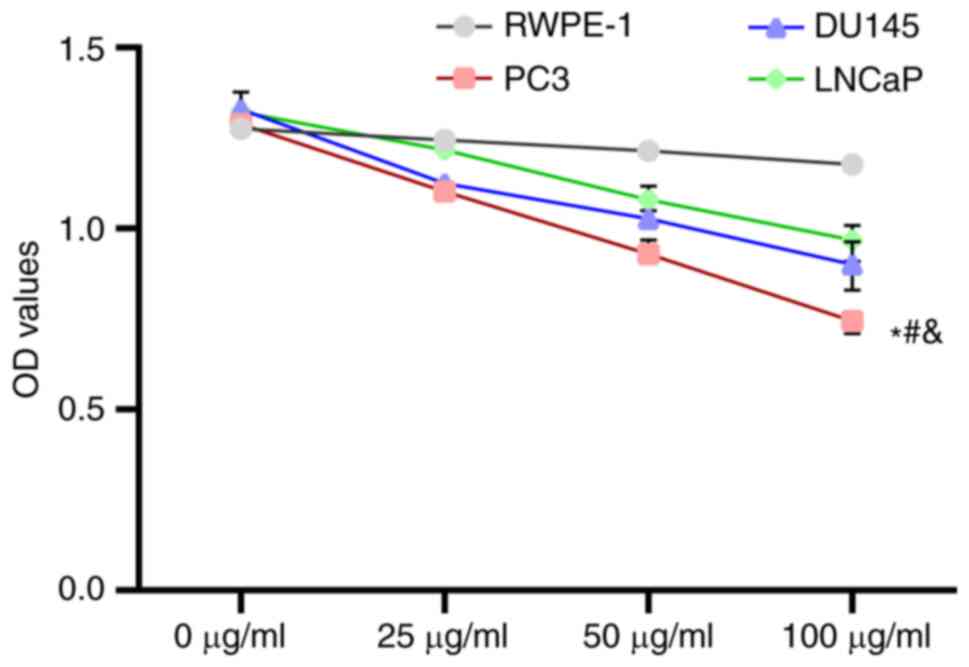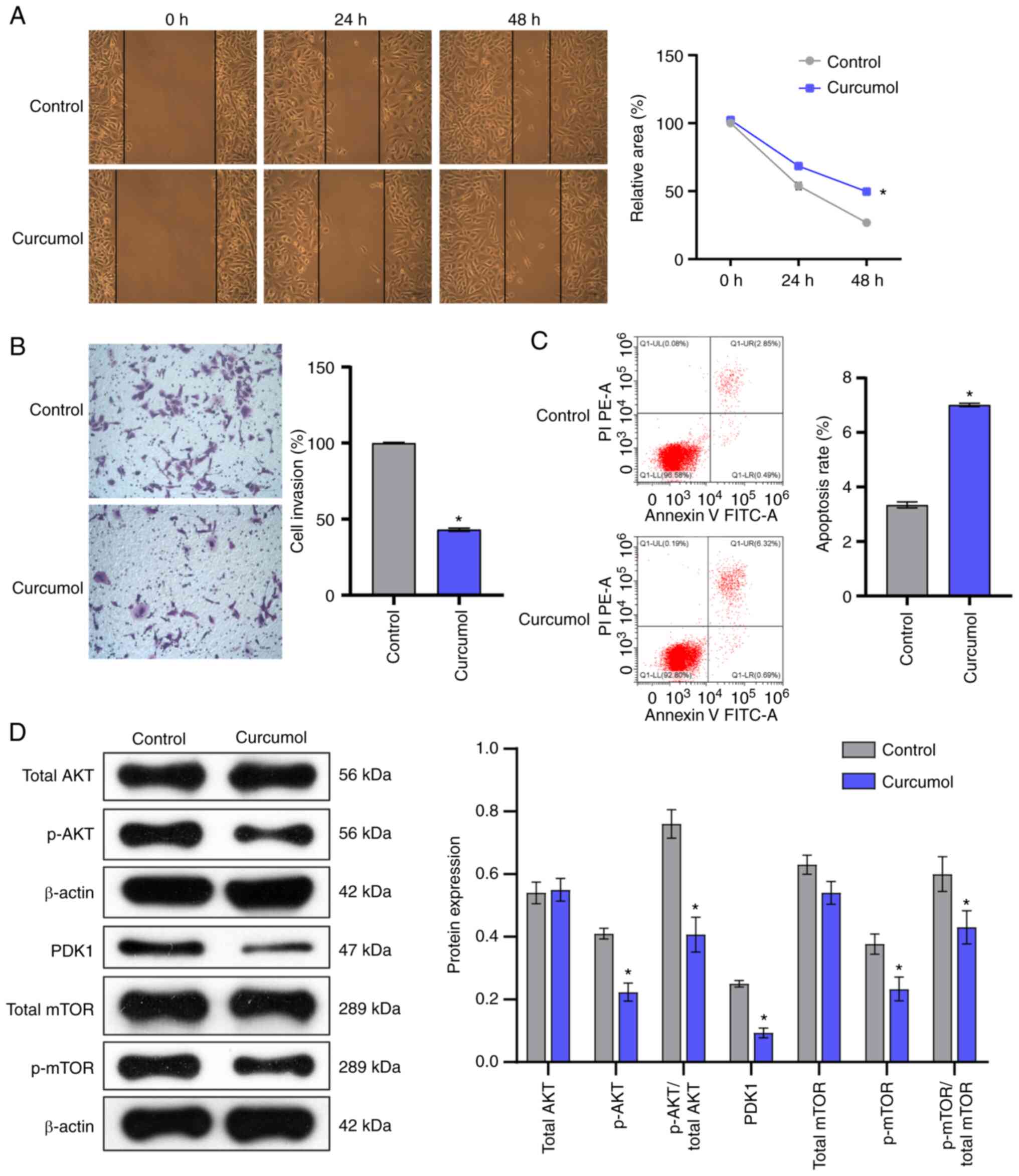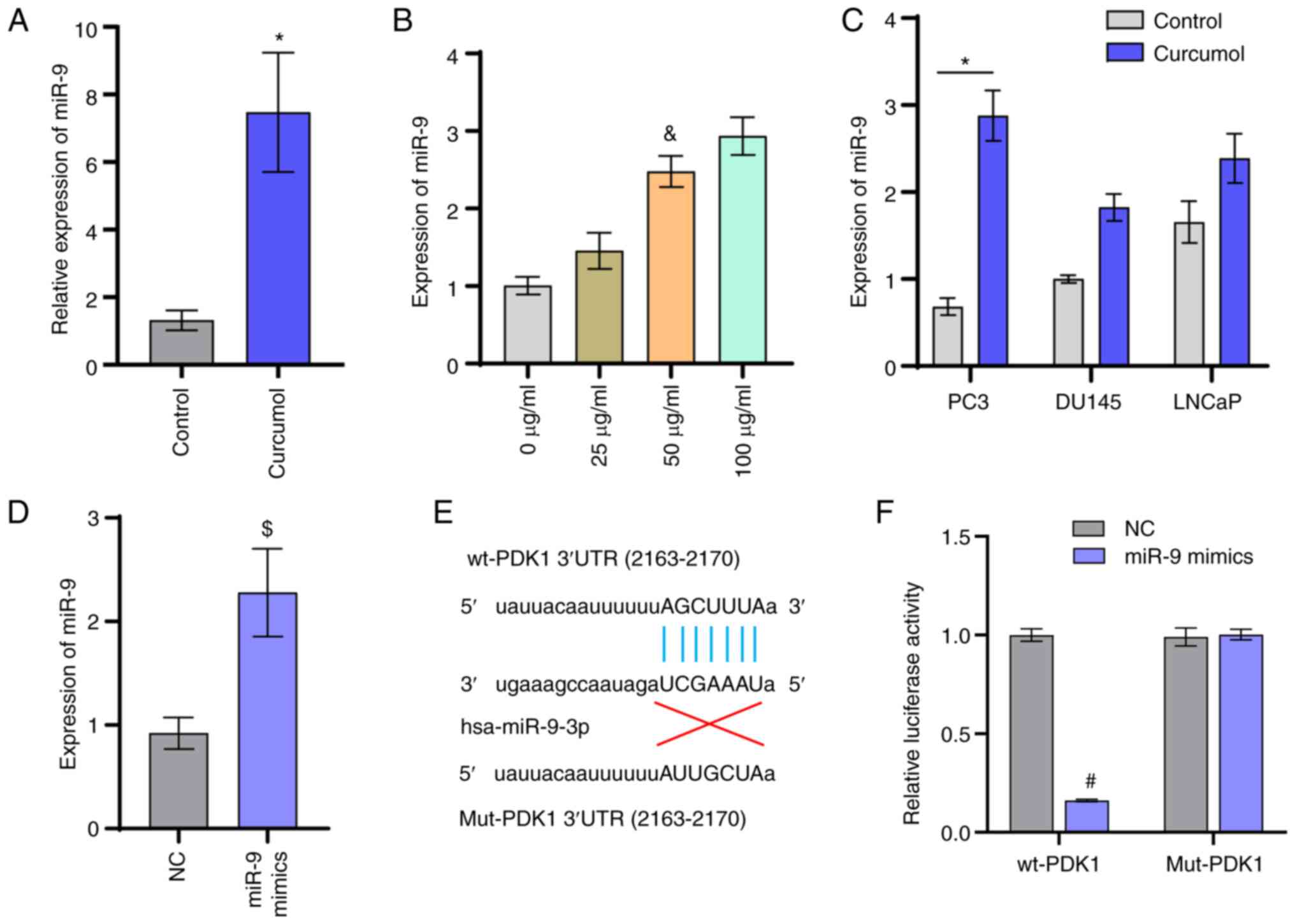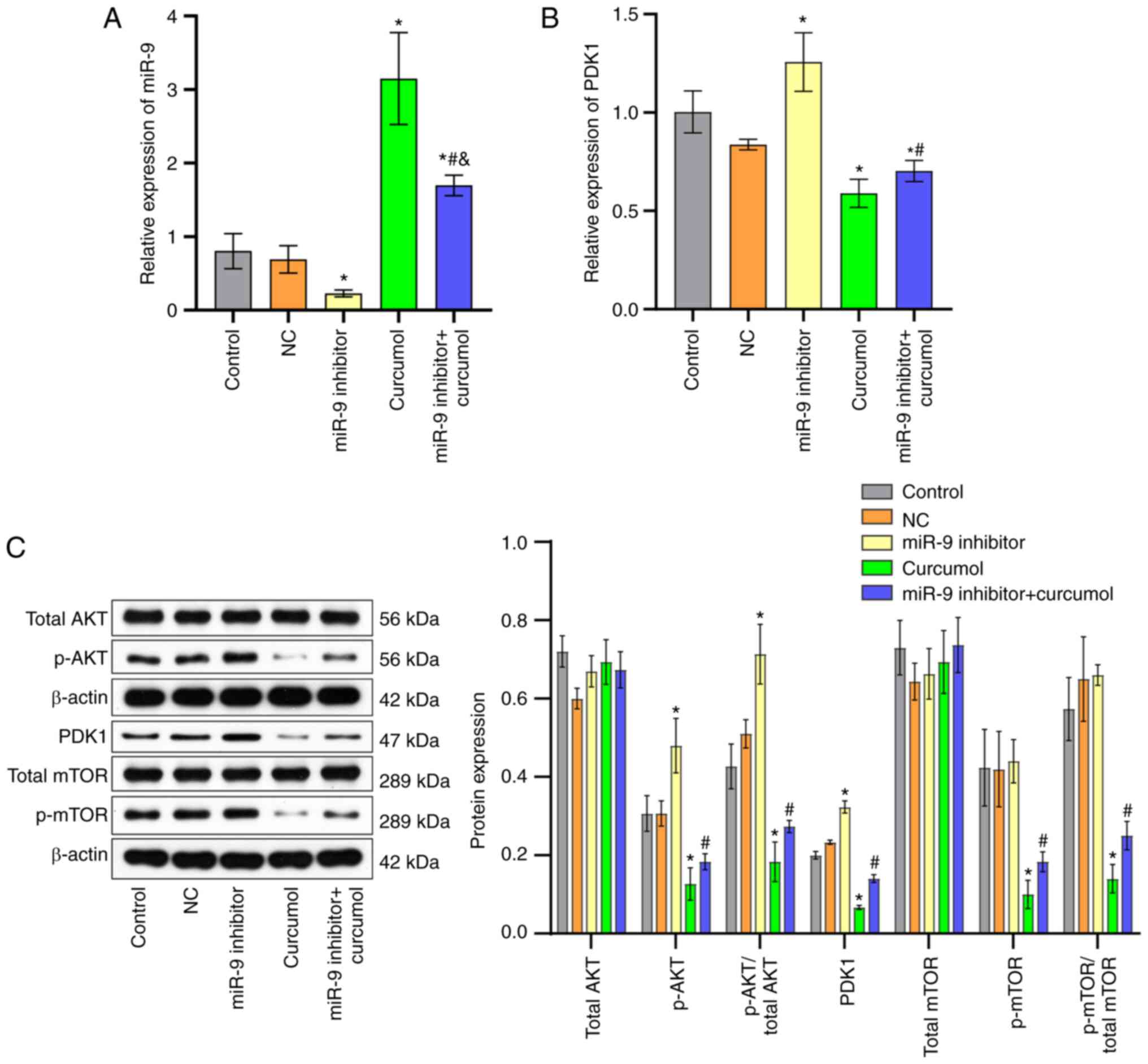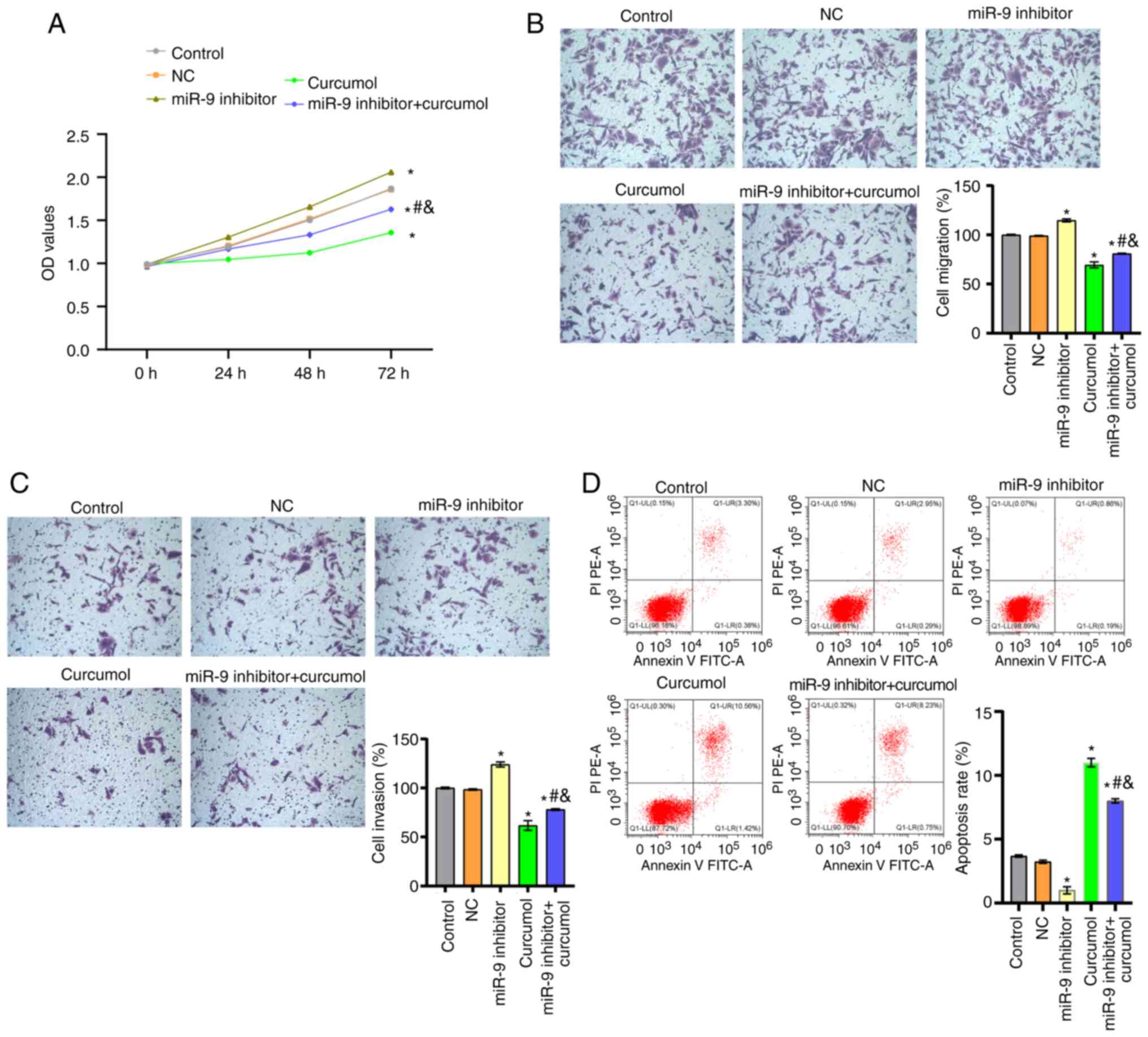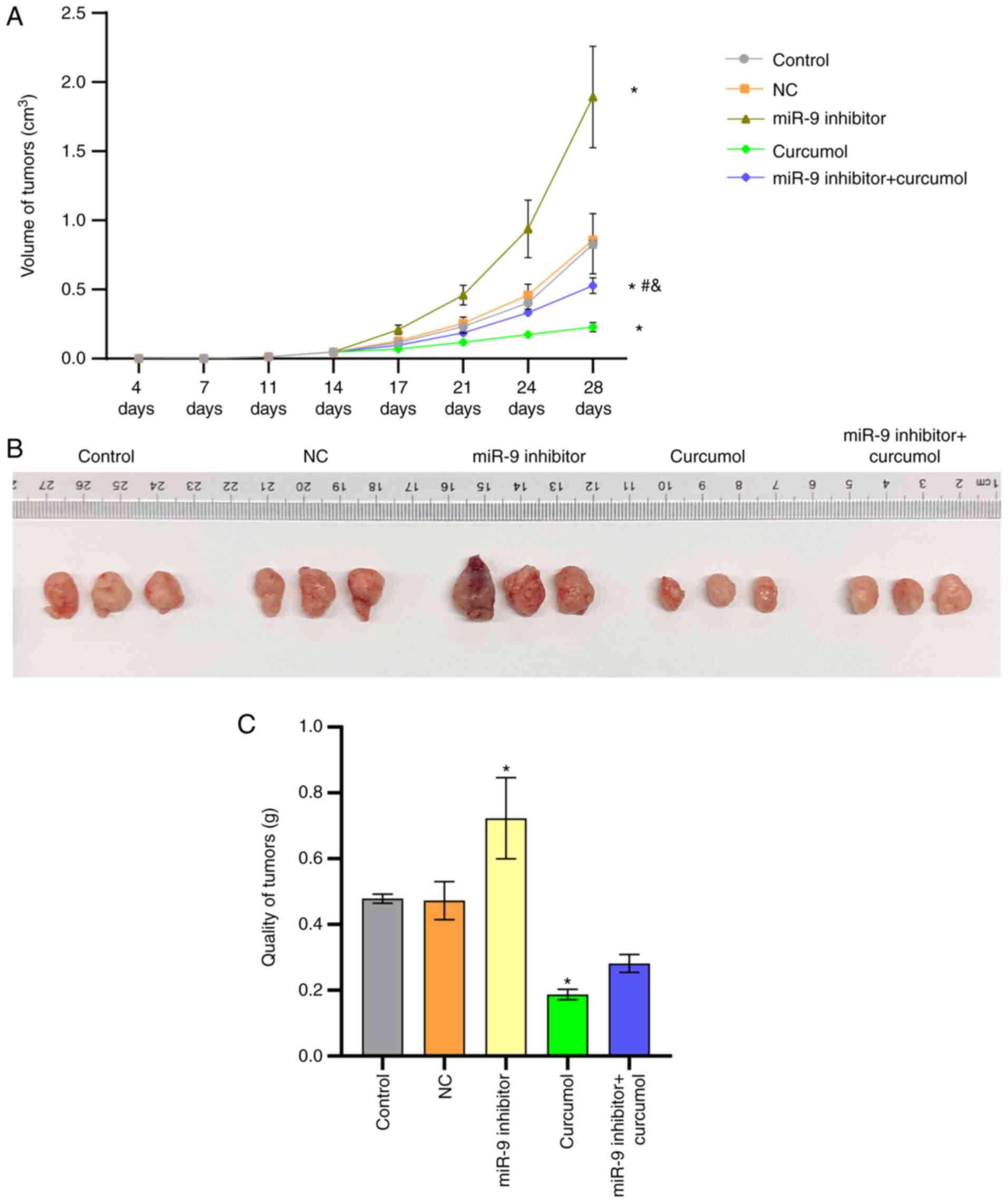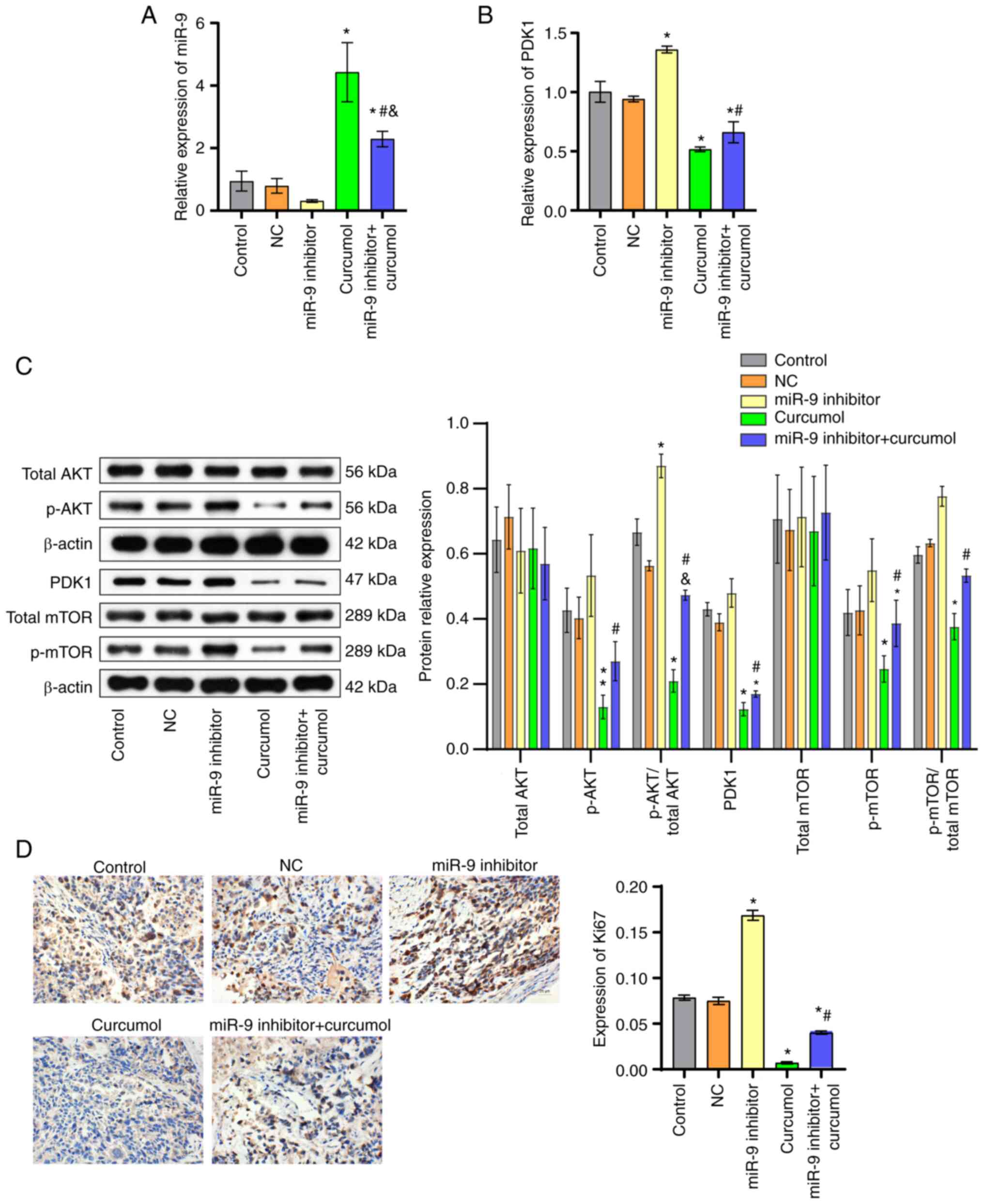|
1
|
Bray F, Ferlay J, Soerjomataram I, Siegel
RL, Torre LA and Jemal A: Global cancer statistics 2018: GLOBOCAN
estimates of incidence and mortality worldwide for 36 cancers in
185 countries. CA Cancer J Clin. 68:394–424. 2018. View Article : Google Scholar : PubMed/NCBI
|
|
2
|
Sebesta EM and Anderson CB: The surgical
management of prostate cancer. Semin Oncol. 44:347–357. 2017.
View Article : Google Scholar : PubMed/NCBI
|
|
3
|
Cordes LM, Gulley JL and Madan RA: The
evolving role of immunotherapy in prostate cancer. Curr Opin Oncol.
28:232–240. 2016. View Article : Google Scholar : PubMed/NCBI
|
|
4
|
Gourdin T: Optimization of therapies for
men with advanced prostate cancer: A review of recent developments
with a look toward the future. Curr Opin Oncol. 31:188–193. 2019.
View Article : Google Scholar : PubMed/NCBI
|
|
5
|
Wu H, You L, Li Y, Zhao Z, Shi G, Chen Z,
Wang Z, Li X, Du S, Ye W, et al: Loss of a negative feedback loop
between IRF8 and AR promotes prostate cancer growth and
enzalutamide resistance. Cancer Res. 80:2927–2939. 2020. View Article : Google Scholar : PubMed/NCBI
|
|
6
|
Wei W, Rasul A, Sadiqa A, Sarfraz I,
Hussain G, Nageen B, Liu X, Watanabe N, Selamoglu Z, Ali M, et al:
Curcumol: From plant roots to cancer roots. Int J Biol Sci.
15:1600–1609. 2019. View Article : Google Scholar : PubMed/NCBI
|
|
7
|
Li YQ, Li GZ, Dong Y, Ma X, Dong HJ, Wu QQ
and Zhao WJ: Orobanone analogues from acid-promoted aromatization
rearrangement of curcumol inhibit hypoxia-inducible factor-1
(HIF-1) in cell-based reporter assays. Bioorg Chem. 85:357–363.
2019. View Article : Google Scholar : PubMed/NCBI
|
|
8
|
Li G, Lin J, Peng Y, Qin K, Wen L, Zhao T
and Feng Q: Curcumol may reverse early and advanced liver
fibrogenesis through downregulating the uPA/uPAR pathway. Phytother
Res. 34:1421–1435. 2020. View
Article : Google Scholar : PubMed/NCBI
|
|
9
|
Zuo HX, Jin Y, Wang Z, Li MY, Zhang ZH,
Wang JY, Xing Y, Ri MH, Jin CH, Xu GH, et al: Curcumol inhibits the
expression of programmed cell death-ligand 1 through crosstalk
between hypoxia-inducible factor-1α and STAT3 (T705) signaling
pathways in hepatic cancer. J Ethnopharmacol. 257:1128352020.
View Article : Google Scholar : PubMed/NCBI
|
|
10
|
Zhou L, Wei E, Zhou B, Bi G, Gao L, Zhang
T, Huang J, Wei Y and Ge B: Anti-proliferative benefit of curcumol
on human bladder cancer cells via inactivating EZH2 effector.
Biomed Pharmacother. 104:798–805. 2018. View Article : Google Scholar : PubMed/NCBI
|
|
11
|
Zhang W, Wang Z and Chen T: Curcumol
induces apoptosis via caspases-independent mitochondrial pathway in
human lung adenocarcinoma ASTC-a-1 cells. Med Oncol. 28:307–314.
2011. View Article : Google Scholar : PubMed/NCBI
|
|
12
|
Wang G, Dong Y and Liu H: Curcumol
enhances the anti-tumor effects of metformin via suppressing
epithelial-mesenchymal transition in triple-negative breast cancer.
Ann Transl Med. 8:9462020. View Article : Google Scholar : PubMed/NCBI
|
|
13
|
Zeng C, Fan D, Xu Y, Li X, Yuan J, Yang Q,
Zhou X, Lu J, Zhang C, Han J, et al: Curcumol enhances the
sensitivity of doxorubicin in triple-negative breast cancer via
regulating the miR-181b-2-3p-ABCC3 axis. Biochem Pharmacol.
174:1137952020. View Article : Google Scholar : PubMed/NCBI
|
|
14
|
Liu H, Wang J, Tao Y, Li X, Qin J, Bai Z,
Chi B, Yan W and Chen X: Curcumol inhibits colorectal cancer
proliferation by targeting miR-21 and modulated PTEN/PI3K/Akt
pathways. Life Sci. 221:354–361. 2019. View Article : Google Scholar : PubMed/NCBI
|
|
15
|
Livak KJ and Schmittgen TD: Analysis of
relative gene expression data using real-time quantitative PCR and
the 2(-Delta Delta C(T)) method. Methods. 25:402–408. 2001.
View Article : Google Scholar : PubMed/NCBI
|
|
16
|
Yang C, Zhang JJ, Zhang XP, Xiao R and Li
PG: Sporamin suppresses growth of xenografted colorectal carcinoma
in athymic BALB/c mice by inhibiting liver β-catenin and vascular
endothelial growth factor expression. World J Gastroenterol.
25:3196–3206. 2019. View Article : Google Scholar : PubMed/NCBI
|
|
17
|
Ning N, Liu S, Liu X, Tian Z, Jiang Y, Yu
N, Tan B, Feng H, Feng X and Zou L: Curcumol inhibits the
proliferation and metastasis of melanoma via the
miR-152-3p/PI3K/AKT and ERK/NF-κB signaling pathways. J Cancer.
11:1679–1692. 2020. View Article : Google Scholar : PubMed/NCBI
|
|
18
|
Cristofani R, Montagnani Marelli M,
Cicardi ME, Fontana F, Marzagalli M, Limonta P, Poletti A and
Moretti RM: Dual role of autophagy on docetaxel-sensitivity in
prostate cancer cells. Cell Death Dis. 9:8892018. View Article : Google Scholar : PubMed/NCBI
|
|
19
|
Pickard RD, Spencer BH, McFarland AJ,
Bernaitis N, Davey AK, Perkins AV, Chess-Williams R, McDermott CM,
Forbes A, Christie D and Anoopkumar-Dukie S: Paradoxical effects of
the autophagy inhibitor 3-methyladenine on docetaxel-induced
toxicity in PC-3 and LNCaP prostate cancer cells. Naunyn
Schmiedebergs Arch Pharmacol. 388:793–799. 2015. View Article : Google Scholar : PubMed/NCBI
|
|
20
|
Zang S, Tang Q, Dong F, Liu H, Li L, Guo
F, Pan X, Lin H, Zeng W, Cai Z, et al: Curcumol inhibits the
proliferation of gastric adenocarcinoma MGC-803 cells via
downregulation of IDH1. Oncol Rep. 38:3583–3591. 2017.PubMed/NCBI
|
|
21
|
Yu C, Sun X and Niu Y: An investigation of
the developmental neurotoxic potential of curcumol in PC12 cells.
Toxicol Mech Methods. 26:635–643. 2016. View Article : Google Scholar : PubMed/NCBI
|
|
22
|
Wang H, Wang Y, Jiang X, Wang Z, Zhong B
and Fang Y: The molecular mechanism of curcumol on inducing cell
growth arrest and apoptosis in Jurkat cells, a model of
CD4+ T cells. Int Immunopharmacol. 21:375–382. 2014.
View Article : Google Scholar : PubMed/NCBI
|
|
23
|
Li X, Liu H, Wang J, Qin J, Bai Z, Chi B,
Yan W and Chen X: Curcumol induces cell cycle arrest and apoptosis
by inhibiting IGF-1R/PI3K/Akt signaling pathway in human
nasopharyngeal carcinoma CNE-2 cells. Phytother Res. 32:2214–2225.
2018. View
Article : Google Scholar : PubMed/NCBI
|
|
24
|
Valera VA, Parra-Medina R, Walter BA,
Pinto P and Merino MJ: microRNA expression profiling in young
prostate cancer patients. J Cancer. 11:4106–4114. 2020. View Article : Google Scholar : PubMed/NCBI
|
|
25
|
Huang G, Liu X, Zhao X, Zhao J, Hao J, Ren
J and Chen Y: miR-9 promotes multiple myeloma progression by
regulating TRIM56/NF-κB pathway. Cell Biol Int. 43:1223–1233. 2019.
View Article : Google Scholar : PubMed/NCBI
|
|
26
|
Xu XZ, Li XA, Luo Y, Liu JF, Wu HW and
Huang G: miR-9 promotes synovial sarcoma cell migration and
invasion by directly targeting CDH1. Int J Biochem Cell Biol.
112:61–71. 2019. View Article : Google Scholar : PubMed/NCBI
|
|
27
|
Yao X, Xie L and Zeng Y: miR-9 promotes
angiogenesis via targeting on sphingosine-1-phosphate receptor 1.
Front Cell Dev Biol. 8:7552020. View Article : Google Scholar : PubMed/NCBI
|
|
28
|
Wang WX, Yu HL and Liu X: miR-9-5p
suppresses cell metastasis and epithelial-mesenchymal transition
through targeting FOXP2 and predicts prognosis of colorectal
carcinoma. Eur Rev Med Pharmacol Sci. 23:6467–6477. 2019.PubMed/NCBI
|
|
29
|
Wang J, Wang B, Ren H and Chen W: miR-9-5p
inhibits pancreatic cancer cell proliferation, invasion and
glutamine metabolism by targeting GOT1. Biochem Biophys Res Commun.
509:241–248. 2019. View Article : Google Scholar : PubMed/NCBI
|
|
30
|
Lu J, Liu QH, Wang F, Tan JJ, Deng YQ,
Peng XH, Liu X, Zhang B, Xu X and Li XP: Exosomal miR-9 inhibits
angiogenesis by targeting MDK and regulating PDK/AKT pathway in
nasopharyngeal carcinoma. J Exp Clin Cancer Res. 37:1472018.
View Article : Google Scholar : PubMed/NCBI
|
|
31
|
Luo D, Xu X, Li J, Chen C, Chen W, Wang F,
Xie Y and Li F: The PDK1/c-Jun pathway activated by TGF-β induces
EMT and promotes proliferation and invasion in human glioblastoma.
Int J Oncol. 53:2067–2080. 2018.PubMed/NCBI
|
|
32
|
Jing P, Zhou S, Xu P, Cui P, Liu X, Liu X,
Liu X, Wang H and Xu W: PDK1 promotes metastasis by inducing
epithelial-mesenchymal transition in hypopharyngeal carcinoma via
the Notch1 signaling pathway. Exp Cell Res. 386:1117462020.
View Article : Google Scholar : PubMed/NCBI
|
|
33
|
Siu MK, Jiang YX, Wang JJ, Leung TH, Ngu
SF, Cheung AN, Ngan HY and Chan KK: PDK1 promotes ovarian cancer
metastasis by modulating tumor-mesothelial adhesion, invasion, and
angiogenesis via α5β1 integrin and JNK/IL-8 signaling. Oncogenesis.
9:242020. View Article : Google Scholar : PubMed/NCBI
|
|
34
|
Zhou WM, Wu GL, Huang J, Li JG, Hao C, He
QM, Chen XD, Wang GX and Tu XH: Low expression of PDK1 inhibits
renal cell carcinoma cell proliferation, migration, invasion and
epithelial mesenchymal transition through inhibition of the
PI3K-PDK1-Akt pathway. Cell Signal. 56:1–14. 2019. View Article : Google Scholar : PubMed/NCBI
|
|
35
|
Bamodu OA, Chang HL, Ong JR, Lee WH, Yeh
CT and Tsai JT: Elevated PDK1 expression drives PI3K/AKT/MTOR
signaling promotes radiation-resistant and dedifferentiated
phenotype of hepatocellular carcinoma. Cells. 9:7462020. View Article : Google Scholar : PubMed/NCBI
|















